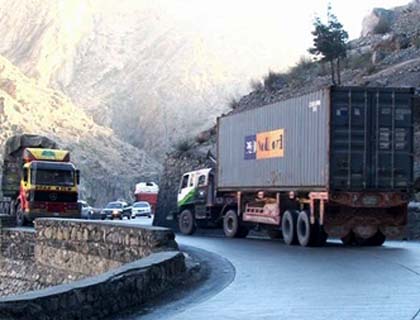ISLAMABAD - An ongoing plan to import electricity from Central Asia, which has the backing of United States, faces delay as Pakistan and Afghanistan are locked in a row over transit fee for transmission of electricity.
According to officials, Afghanistan is seeking a fee of 2 cents per unit, which threatens to make electricity purchase unfeasible for Pakistan.
Some officials of the Ministry of Water and Power suggest that Pakistan and Afghanistan should enter into a bilateral deal and Kabul should waive the transit fee altogether.
“Afghanistan should not demand the fee as Pakistan is treating power supply as a transit trade agreement,” an official commented.
Officials point out that Pakistan has been providing a supply route to Nato forces in Afghanistan with a nominal fee and Kabul is also enjoying goods trade under a transit trade accord.
The World Bank has approved the Central Asia-South Asia 1000 (CASA-1000) power supply project and is offering $120 million, out of a total loan of $552 million, for laying transmission lines in Pakistan.
Total cost of the project is estimated at $1.16 billion and the remaining finances will be provided by the Islamic Development Bank and other donors.
Under the project, the Kyrgyz Republic and Tajikistan will export 1,300 megawatts of electricity to Pakistan and Afghanistan. A major chunk of supplies will be received by Pakistan and about 300MW will go to Afghanistan.
“Lately, the government has expressed willingness to pay a fee of 0.50 cent per unit,” the official said, adding the World Bank had assessed the fee at 5 cents.
A key official, who had opposed the fee or suggested a very nominal charge, had been sidelined by the Ministry of Water and Power, officials said.
The bureaucracy in the ministry was divided over the issue. Some suggest that the government is providing a free route to Afghanistan for trade under the transit trade agreement, so Kabul should not demand the transit fee.
Others were of the view that the fee, if necessary, should not be more than Rs0.10 per unit.
Apart from the transit fee, Pakistan has to settle power tariff issue with Tajikistan. “Earlier, Tajikistan had sought 3.5 cents per unit, but it has now increased it to 7 cents per unit,” the official said, believing the two sides were expected to settle at five cents. (Monitoring Desk)

